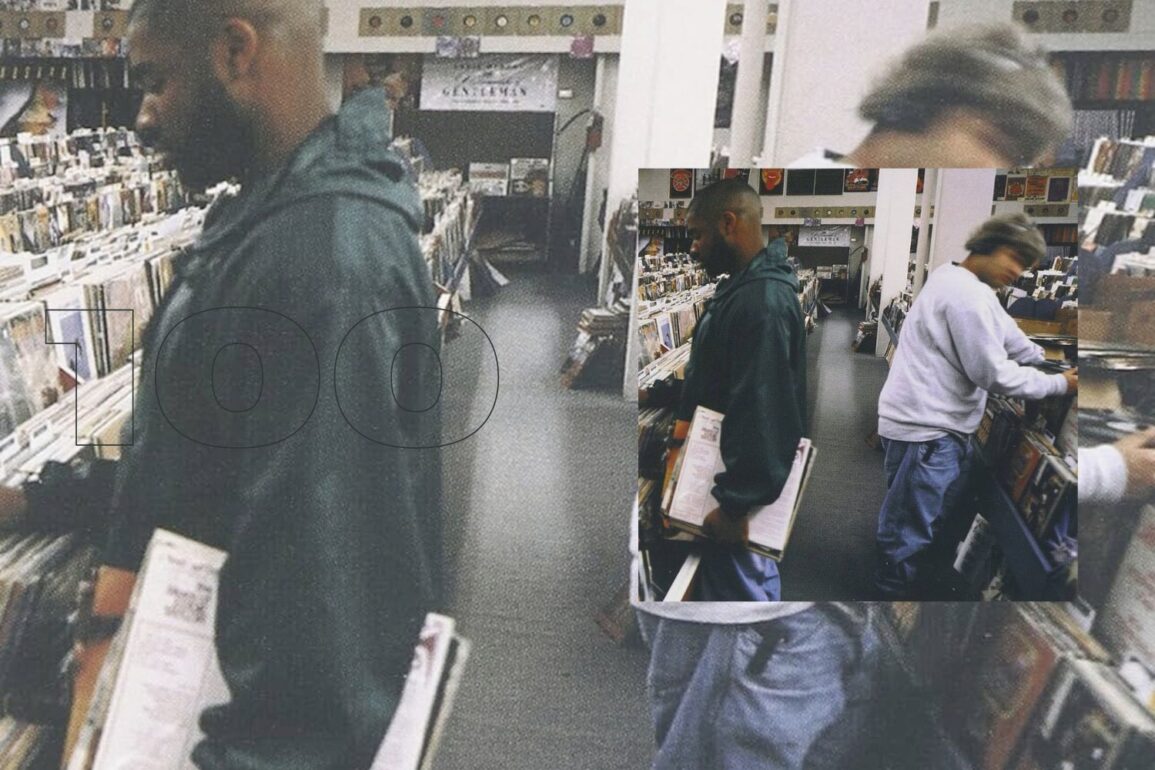If it weren’t for Nas’ “The World Is Yours,” I might not have discovered Ahmad Jamal’s “I Love Music.” If not for Mobb Deep’s “Shook Ones Pt. II,” I probably (maybe?) wouldn’t know Herbie Hancock’s “Jessica.” I discovered Labi Siffre’s “I Got The” through Eminem’s “My Name Is,” and I know Patrice Rushen’s “Forget Me Nots” because of Will Smith’s “Men In Black,” a song I don’t even particularly like. Public Enemy’s “Black Steel in the Hour of Chaos” gave me Isaac Hayes’ “Hyperbolicsyllabicsesquedalymystic,” Ice Cube’s “Today Was a Good Day” directed me to The Isley Brothers’ “Footsteps in the Dark,” and Digable Planets’ “Blowin’ Down” guided me to Bobbie Humphrey’s “Jasper Country Man.”
When I say that innumerable favorite songs were introduced to me through being sampled in the works of other artists, I’m not saying anything unique. The sound of the 21st and late 20th century is woven together through the fabric of sampling, just one of the many gifts that hip-hop gave to popular music writ large. There are entire databases like WhoSampled, dedicated to identifying samples (no snitching, I’m just the messenger), and if a sample’s either hot or enduring enough, it’ll make the rounds multiple times. Once Portishead made fodder of Isaac Hayes “Ike’s Rap II” on their closing track from Dummy, “Glory Box”, permutations of that sample showed up in songs by Tricky, Racionais MC’s, Snoh Alegra and Alessia Cara. A great five seconds of music can essentially live forever.
I discovered quite a few more of my favorite songs through samples on DJ Shadow’s full-length debut Endtroducing…, but at the time I didn’t even consider that they were samples. And not for lack of transparency on Shadow’s part. Everything about the presentation on Endtroducing… makes patently clear that this is a work pieced together from snippets of songs discovered through meticulous crate digging and cut-and-paste work. The album’s artwork depicts a photo of Blackalicious producer Chief Xcel and rapper Lyrics Born (in a wig) crate digging at Sacramento’s Rare Records. Another photo on the inside sleeve shows Shadow himself flipping through a stack of 45s. And a headline of sorts amid the acknowledgements and credits reads, “This album reflects a lifetime of vinyl culture.”
There’s no ambiguity about the methods of DJ Shadow, aka Sacramento producer and turntablist Josh Davis. And yet the patchwork of samples isn’t what registered to me upon first listen. It’s such a seamless and sublime listen, a gorgeously dense and immersive symphony of borrowed parts, that my first impulse upon experiencing its maximalist widescreen saga was to simply be in awe of the rich and intricate whole.
The release of Endtroducing… coincided with a skyrocketing Big Beat sound coming out of England that made crossover hits out of songs by The Chemical Brothers, Prodigy and Fatboy Slim. Electronic music was, arguably and for a brief moment, the new rock, and alternative stations jumped on the bandwagon—if you didn’t hear The Crystal Method’s “Busy Child” several dozen times during the summer of 1997 you probably didn’t have a functioning FM dial. Successful as it was, it didn’t take in quite the same way that the brostep/stadium EDM explosion happened 15 years later, and I even remember friends and classmates bemoaning the very idea of so-called “electronica” whenever I brought up the fact that I liked artists such as Underworld or Aphex Twin. Yet the conversation in music for a time turned to the influence of rave scenes in popular music, and MTV even helped the transition via its late-night show AMP, on which DJ Shadow’s music would occasionally appear, alongside artists such as Autechre, Fluke and Photek.
In certain four-minute stretches, DJ Shadow might have sounded like a peer to such beat-driven answers to rock music, his singles “The Number Song” and post-Endtroducing… encore “High Noon” hitting with a similarly heavy impact—the former even borrowing its hook from a Metallica song. But DJ Shadow came up through hip-hop rather than rock or rave scenes, early on collaborating with rappers like Endtroducing… cover star Lyrics Born and releasing his own extended cut-and-paste exercises such as 1993’s “In/Flux,” inspired by pioneering hip-hop DJs like Steinski and Prince Paul. And he made the album in the studio of fellow hip-hop producer Dan the Automator, piecing together one- to three-second samples of dozens of records with an AKAI MPC60 bought at Guitar Center.
The breakout single from Endtroducing…, “Midnight in a Perfect World,” feels separate from dance music and hip-hop entirely, outside of the heavy slap of its boom-bap drum pattern. Its opening rhyme couplet, sampled from Organized Konfusion’s “Releasing Hypnotical Gases,” begins to slow immediately as it’s introduced, as if the record is literally melting on the turntable. What follows is a melancholy loop of atmospheric organ, a starkly emotional twinkle of piano keys, ethereal female vocals and eventually some ominous wheezes of cello during the bridge. It’s a lush and elaborate work, all pieced together from key moments on records that are either cult classics (David Axelrod, Meredith Monk) or entirely unknown (Baraka), or somewhere in between (Pekka Pohjola).
Yet the likely immediate response to anyone other than a serious crate digger or professional beatmaker isn’t one of spot-the-sample, but rather the entirely new whole that Shadow creates from this unlikely combination. He doesn’t seek to erase or cover over the seams—though they’re by no means the focal point of the song, record scratches artfully appear in key moments—but removed from their original context and placed in a new strata of other breaks and loops, it’s a new and unique piece that perhaps better than any other song (other than those on Endtroducing…) reveals the possibilities of collage as composition.
Endtroducing… comprises nine such MPC masterpieces woven together with intros, gags and punchlines as commentary (“Why Hip Hop Sucks in ‘96”: “It’s the money!”). These sketches are the most obvious trace back to Shadow’s earlier history in hip-hop, occasional reminders that Endtroducing… is an expansion of that world built from its base elements rather than something apart from it. Davis sought to speak to a history and lineage of sampling in hip-hop through his method and medium of creation. But where it’s rooted in hip-hop and—at least on the basis of its source material—art-rock and prog, Endtroducing… is a creation all Davis’ own. He juxtaposes interview clips with austere piano and funk guitar on “Building Steam with a Grain of Salt,” spins a Tangerine Dream guitar riff into a space-age jazz funk exercise on “Changeling,” even escalates an eerie cinematic soundscape into a frantic beat frenzy on the lengthy “Stem/Long Stem.”
Though sampling had long been established in popular music, no artist had employed samples in quite the same way that DJ Shadow did prior to Endtroducing… It’s not a DJ mix, intended not to move bodies so much as create a rich headphone or hi-fi listening experience, where new details emerge within the shifting strata: The hypnotic guitar plucks that emerge in “What Does Your Soul Look Like (Part 4)”, the monologue about Xanadu in “Mutual Slump,” the victory lap scratch session in “What Does Your Soul Look Like (Part 1)”—they all feel like rewards to be uncovered, nestled in an intricate array of mesmerizing overlapping elements.
The weight of Shadow’s accomplishment on Endtroducing… isn’t one to be overstated, breaking new ground in tangible and practical ways. It’s recognized by the Guinness Book of World Records as the first album to be made entirely of samples, which would have cemented its legacy even if it weren’t as masterfully composed as it is. Yet it’s not a sound that Davis himself has ever had much reason to return to, later drawing even more influence from prog on The Private Press, celebrating Bay Area hip-hop with The Outsider, and crossing over into alt-rock collabs with UNKLE’s Psyence Fiction. Though if its legacy is larger than himself, he acknowledges how rare it is to have created something that remains as compelling and provocative as it is. “I just think, as the years go by, it’s harder and harder to really find a reason to be annoyed that you made something that people want to continuously talk about,” he told The Quietus around Endtroducing…’s 20th anniversary.
Endtroducing… did something arguably even more significant, however, in that it changed the conversation about sampling. Though as a method of production and songwriting it had been slowly creeping into rock and pop music throughout the ‘90s, thanks to genre deconstructionists like Beck, Shadow pushed it farther than anyone else had, and in the process, validating it as a practice to those who at the time would have otherwise been reistatnt to it.
“I think, initially in the late ’80s when the technology was made available, the instant reaction to it by the old guard at that time was, ‘Well, [sampling] is just out-and-out theft. It’s stealing.’” Davis told NPR in 2012. “But I think what Endtroducing….. did for a lot of people was kind of close the book on that discussion and say, OK, this is legitimate.”
When I heard Entroducing… for the first time, I had little perspective on the politics of sampling and too narrow a frame of reference to fully grasp the lineage from which DJ Shadow descended. At the time, my criteria for what made for good music didn’t extend much beyond loud guitars and louder guitars—as most teenage boys in suburbia probably likewise concurred at the time. Endtroducing… obliterated that narrow perspective by introducing more than new methods of making music, but for listeners like me, a new way of hearing music—as if an entire spectrum of color had been made visible for the first time.
Naturally, discovering that it was a total work composed of samples only compounded that feeling of revelation. And in doing so, I came to learn of so many more songs that are now among the celebrated treasures that came to me through sampling. Because of DJ Shadow, I now have David Axelrod’s “The Human Abstract” and Tangerine Dream’s “Invisible Limits,” Meredith Monk’s “Dolmen Music” and Organized Konfusion’s “Releasing Hypnotical Gases.” All of which I’m thankful for, but none more so than Endtroducing… itself, an album that transforms the tangible into the transcendent.
Note: When you buy something through our affiliate links, Treble receives a commission. All albums we cover are chosen by our editors and contributors.
Treble is supported by its patrons. Become a member of our Patreon, get access to subscriber benefits, and help an independent media outlet continue delivering articles like these.
This post was originally published on this site be sure to check out more of their content.








